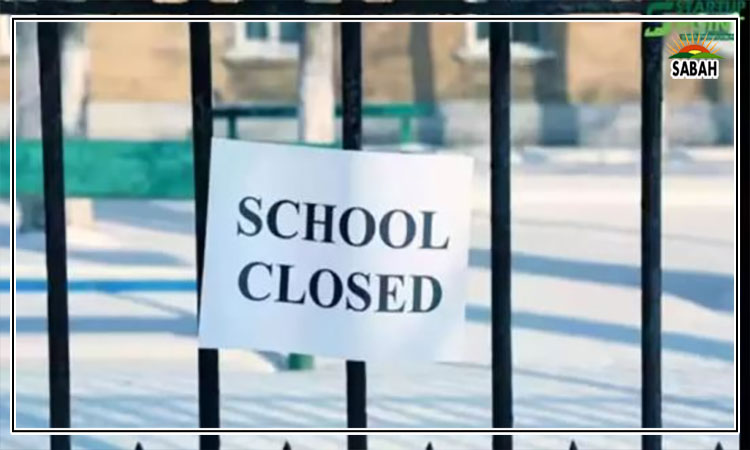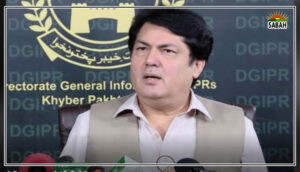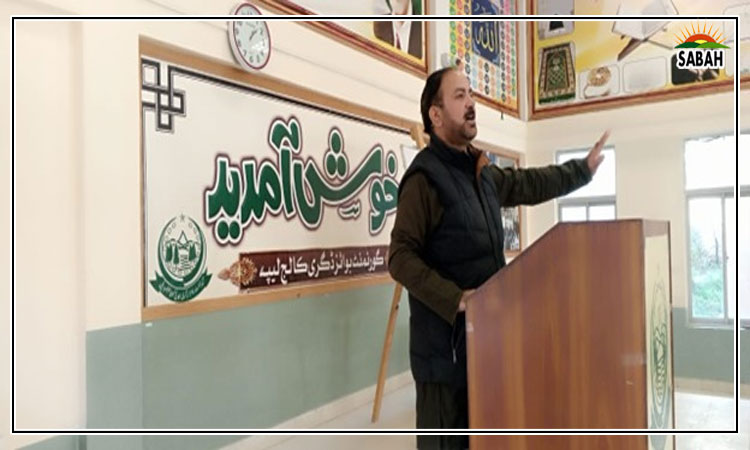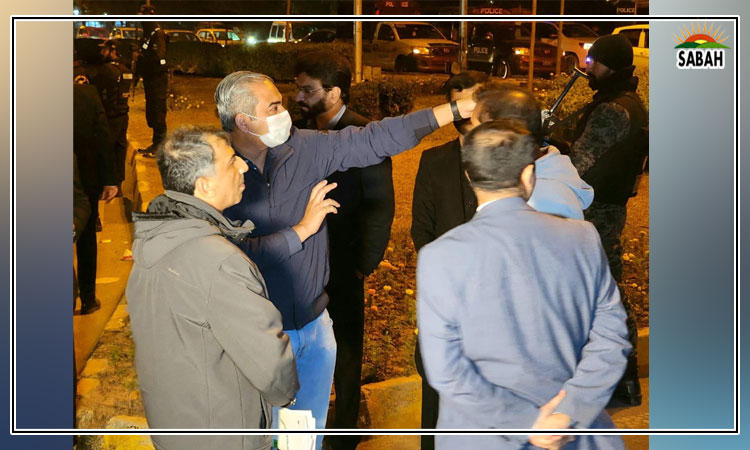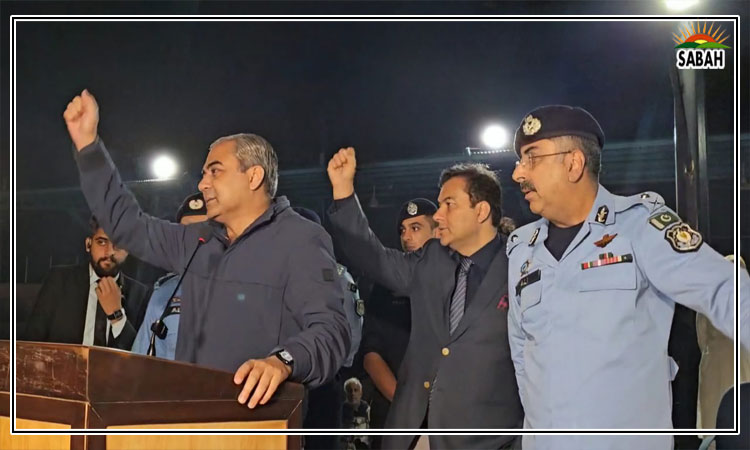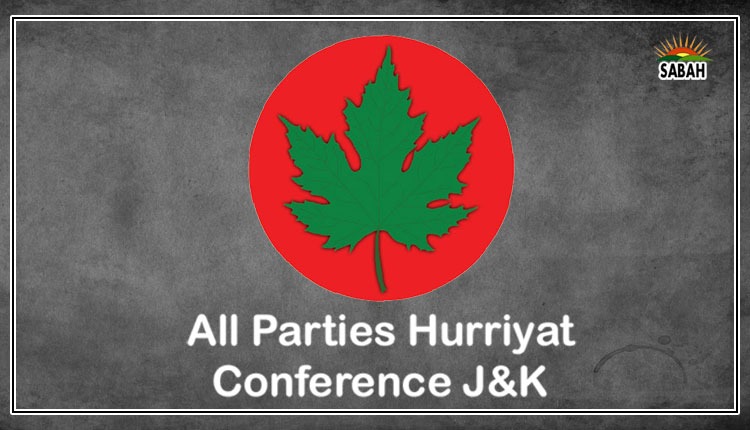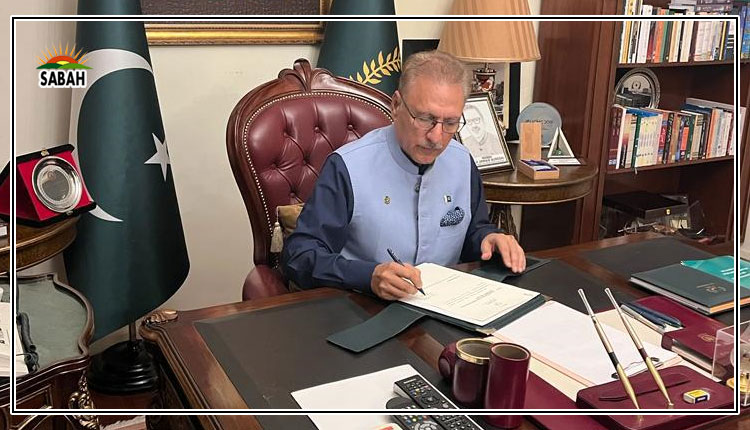President Dr. Arif Alvi signs PEMRA (Amendment) Bill, 2023 into law
ISLAMABAD, August 15 (SABAH): President Dr. Arif Alvi on Tuesday approved the Pakistan Electronic Media Regulatory Authority (PEMRA) (Amendment) Bill, 2023.
According to a statement issued by the Aiwan-e-Sadr, the bill has been approved under Article 75 of the Constitution and has now changed into an act.
Meanwhile speaking to media persons, former minister for information and broadcasting and Pakistan Muslim League-Nawaz (PML-N) Spokesperson Marriyum Aurangzeb has congratulated the media workers saying that they have brought the black law within the limits of democratic and basic human rights and the Constitution.
The freedom of expression has turned into a reality after the inclusion of Article 19 as a part of the law, she added. The former information minister said that the bill will ensure financial security for media workers as the government will not grant ads to those media houses that will not pay the dues to journalists for consecutive two months.
“The transfer of powers from PEMRA chairman to Council of Complaints has become law,” she said, adding that the inclusion of the representatives of the Pakistan Federal Union of Journalists (PFUJ) and Pakistan Broadcasters Association (PBA) in the council has become law.
Marriyum Aurangzeb hailed the bill becoming law and said it was a joint achievement of media workers and media houses.
Meanwhile an earlier press release issued by the President House on Tuesday said President Dr. Arif Alvi assured media workers and the journalist community of his support for the bill during a meeting with a delegation of representatives of the Pakistan Federal Union of Journalists (PFUJ), All Pakistan Newspapers Society, Pakistan Broadcasters Association, Council of Pakistan Newspaper Editors and Association of Electronic Media Editors and News Directors.
The president appreciated the collective efforts of the media community for introducing amendments to the PEMRA law, especially to protect the rights of media workers, the press release said.
He said that the linking of government advertisements with the payment of dues to electronic media employees would help address their issues.
The president discussed in detail various aspects of the bill with the visiting delegation, adding that the amendment bill had brought improvements to the existing media law.
The president also asked the members of the delegation to volunteer to educate the youth about fake news and disinformation.
He highlighted that teenagers were among the “most vulnerable populations to the scourge of fake news” and they needed to be educated and sensitised about its implications.
He remarked that the media, especially senior journalists, should enhance linkages with academia and universities to guide and educate students about fake news and new developments taking place in the field of journalism.
The president also urged the need to promote diversity of thought and opinions by promoting dialogue in society and the free exchange of ideas.
He said that the dynamics of new forms of media, especially social media, should be understood, adding that it was the “responsibility of media to educate the people on morality and the use of social media in a responsible and constructive manner”.
The delegation briefed the president about various provisions of the new bill that would benefit the journalist community as well as media employees, the press release said, adding that the delegation thanked the president for his support and for taking an interest in addressing the issues faced by the media community.
It is worth mentioning here that last week, the bill was approved by the upper and lower houses of parliament after the federal government withdrew it following journalist associations’ concerns.
The then-information minister, Marriyum Aurangzeb, tabled the bill in the Senate, which was later introduced in the National Assembly, saying that amendments to the bill had been included with the input of all stakeholders.
The bill said a parliamentary committee will be formed for the appointment of the PEMRA chairman and the Ministry of Information will propose five names for the media regulatory body chief.
The parliamentary body will comprise four National Assembly members and two members of the Senate with equal representation from the treasury and opposition benches.
The committee will send a name for the PEMRA chief to the president for appointment, according to the amended law.
If the parliamentary committee could not agree on the name within 30 days, then the information ministry panel will send the bill to the prime minister who will then propose a suitable name for the post and forward it to the president, as per the bill.
The amended legislation has also replaced the word salary for media workers with dues.
Addressing the Senate session, the information minister said earlier there was no platform for media workers to resolve their issues.
“Three clauses have been inserted in the amendment bill. There was room for change and improvement in the bill.”
Marriyum Aurangzeb said the definition of misinformation and disinformation has been redefined in the amended bill.
Consultations were held with various journalistic organisations before the passage of the bill, the minister said, adding that media houses will not get government ads if they do pay minimum wage to their workers.
Moreover, the media houses violating laws related to wages can be imposed a fine of Rs10 million.
Earlier the bill was withdrawn after journalist associations expressed concerns over the legislation.


